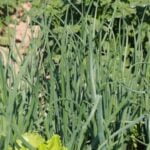Are you struggling to keep the grass at bay in your vegetable garden? Finding the best grass killer for vegetable gardens is essential for maintaining a healthy and productive growing space. Weeds can compete with your vegetables for nutrients, water, and sunlight, so it’s crucial to keep them under control.
When it comes to selecting the right grass killer for your vegetable garden, there are many factors to consider. From chemical-based to organic options, understanding the different types of grass killers available is key to making an informed decision. Additionally, knowing how to properly apply and maintain a weed-free garden after using a grass killer is essential for success.
In this guide, we’ll explore the importance of maintaining a weed-free vegetable garden, discuss the differences between chemical and organic grass killers, and provide valuable tips on how to choose the best option for your specific needs. Whether you’re dealing with a small backyard plot or a larger garden, finding the right grass killer can make all the difference in keeping your vegetables thriving.
So let’s dive in and explore everything you need to know about choosing the best grass killer for your vegetable garden.
Understanding the Different Types of Grass Killers
When it comes to maintaining a healthy and productive vegetable garden, keeping weeds and grass at bay is crucial. Understanding the different types of grass killers available is essential in order to make the best choice for your vegetable garden. There are two main categories of grass killers: chemical and organic.
Chemical grass killers, also known as synthetic herbicides, contain substances that target and kill unwanted grasses and weeds. These products are often fast-acting and effective, making them a popular choice for many gardeners. However, it’s important to use caution when using chemical grass killers in a vegetable garden, as they can potentially harm or contaminate the soil if not used properly.
On the other hand, organic grass killers are made from natural ingredients and are generally considered safer for both the environment and your vegetable plants. Organic options may take longer to show results compared to chemical alternatives, but they provide a more sustainable and eco-friendly approach to weed control in your vegetable garden.
Factors to consider before choosing the best grass killer for your vegetable garden include the type of weeds you are targeting, the size of your garden, and whether you have any specific concerns about using chemical products around your edible plants. It’s important to weigh the pros and cons of each type of grass killer before making a decision.
Top 5 Best Grass Killers for Vegetable Gardens
- Ortho GroundClear Vegetation Killer
- Preen Garden Weed Preventer
- Natural Armor All-Natural Weed & Grass Killer
- Safer Brand Fast-Acting Weed & Grass Killer
- Bonide Burnout Weed & Grass Killer
These top-rated grass killers offer effective solutions for controlling unwanted vegetation in your vegetable garden. Whether you prefer a chemical or organic option, there’s a product on this list that can help you maintain a weed-free environment for your vegetables without harming them in the process. Always follow the manufacturer’s instructions when applying any grass killer in your vegetable garden for best results.
Factors to Consider Before Choosing the Best Grass Killer for Vegetable Gardens
When it comes to choosing the best grass killer for your vegetable garden, there are several factors to consider in order to ensure the health and safety of your plants. It is important to weigh the pros and cons of both chemical and organic grass killers before making a decision.
First, you’ll want to consider the potential impact on your vegetable garden. Chemical grass killers may be more effective at killing weeds quickly, but they also have the potential to harm surrounding plants if not used properly. On the other hand, organic grass killers are safer for your vegetables but may take longer to see results.
Another factor to consider is the environmental impact of the grass killer. Chemical products can be harmful to the environment if they run off into water sources or affect local wildlife. Organic options are generally considered more environmentally friendly.
Additionally, you’ll want to think about the cost and convenience of each type of grass killer. While chemical products may be cheaper and easier to find at local stores, organic options can often be made at home with common household ingredients.
Before choosing a grass killer for your vegetable garden, weigh these factors carefully and make an informed decision based on what will work best for your specific needs.
- Factors to Consider Before Choosing the Best Grass Killer for Vegetable Gardens:
- Potential impact on vegetable garden
- Environmental impact
- Cost and convenience
- Chemical vs. Organic Grass Killers
- Pros and cons of each type
- Effectiveness
- How quickly do you need results?
- Will it harm nearby plants?
Top 5 Best Grass Killers for Vegetable Gardens
When it comes to maintaining a weed-free vegetable garden, finding the best grass killer for vegetable gardens is crucial. With so many options available on the market, it can be overwhelming to choose the right one for your specific needs. In this section, we will explore the top 5 best grass killers for vegetable gardens, taking into account both chemical and organic options.
1. Ortho Weed B Gon Weed Killer: This popular grass killer is known for its effectiveness in controlling a wide range of grasses and weeds without harming your vegetable plants. It contains ingredients that target unwanted grass while leaving your veggies unharmed.
2. Preen Garden Weed Preventer: This organic option acts as a pre-emergent weed preventer, stopping grass and weeds from germinating in your vegetable garden. It’s safe to use around vegetables and provides long-lasting results.
3. Roundup Ready-to-Use Weed & Grass Killer III: While Roundup has been a controversial product due to its active ingredient, glyphosate, this particular formula is considered safe for use around edible plants when used as directed.
4. Natural Armor Weed and Grass Killer: For those looking for an eco-friendly option, this non-toxic and biodegradable grass killer is safe to use in vegetable gardens. It effectively kills unwanted grass and weeds without harming your crops.
5. Bonide Burnout Weed & Grass Killer: Another organic option, this product is made from natural ingredients such as citric acid and clove oil. It’s fast-acting and can be used safely in vegetable gardens.
Before choosing the best grass killer for your vegetable garden, it’s important to consider factors such as the type of grass or weeds you need to control, the impact on surrounding plants, and any potential health or environmental concerns. By selecting the right grass killer for your specific needs, you can effectively maintain a weed-free vegetable garden without compromising the health of your crops.
Step-by-Step Guide on How to Apply Grass Killer in a Vegetable Garden
Applying grass killer in a vegetable garden is an important step in maintaining a weed-free environment for your plants to thrive. Here’s a step-by-step guide on how to effectively apply grass killer in your vegetable garden.
Choose the Right Grass Killer
Before applying any grass killer, it’s crucial to choose the right type for your vegetable garden. Consider whether you want a chemical or organic grass killer, and make sure to select one that is safe for use around edible plants. Read the label carefully and ensure that it is specifically designed for vegetable gardens.
Prepare the Area
Start by preparing the area where you will be applying the grass killer. Remove any existing weeds and grass manually, taking care not to disturb your vegetable plants. Clearing the area will allow the grass killer to target only unwanted growth.
Apply Grass Killer Safely
When applying grass killer in a vegetable garden, it’s essential to do so safely. Wear protective clothing, including gloves and a mask, to prevent direct contact with the product. Follow the instructions on the label regarding dilution and application methods. Be cautious not to overspray and avoid getting any of the product on your vegetable plants.
By following these steps, you can effectively apply grass killer in your vegetable garden without compromising the safety and health of your edible plants. Remember to always read and follow the instructions provided by the manufacturer of the grass killer product you choose.
Tips for Maintaining a Weed-Free Vegetable Garden After Applying Grass Killer
Maintaining a weed-free vegetable garden after applying grass killer is essential to ensure the health and productivity of your crops. Here are some helpful tips to keep your vegetable garden free from unwanted grass and weeds.
Regular Inspections
After applying the best grass killer for vegetable gardens, it’s important to regularly inspect your garden for any signs of new growth or regrowth of grass and weeds. Set aside some time each week to walk through your garden and carefully examine the soil around your vegetables. This step will help you catch any potential issues early on before they become major problems.
Hand Pulling
One effective method for maintaining a weed-free vegetable garden is hand pulling any new grass or weeds that may appear. While this can be a labor-intensive task, it is an excellent way to ensure that no unwanted plants take root in your garden. Be sure to pull the entire plant, including the roots, to prevent regrowth.
Mulching
Applying mulch around your vegetable plants can help suppress the growth of grass and weeds. Mulch creates a barrier that prevents sunlight from reaching the soil, inhibiting weed seeds from germinating. Organic mulches like straw, wood chips, or compost can also improve soil health as they decompose.
By following these tips, you can effectively maintain a weed-free vegetable garden after applying the best grass killer for vegetable gardens. With regular inspections, hand pulling, and mulching, you can keep your garden healthy and thriving without the presence of unwanted grass and weeds.
Common Mistakes to Avoid When Using Grass Killers in Vegetable Gardens
When it comes to maintaining a weed-free vegetable garden, using the best grass killer for vegetable gardens is essential. However, there are common mistakes that gardeners should avoid when using these products to ensure the health and safety of their plants.
One common mistake to avoid is not carefully reading and following the instructions on the grass killer product. Whether using a chemical or organic grass killer, it is crucial to understand the application process, dosage, and safety precautions. Failure to do so can result in ineffective treatment or damage to your vegetable plants.
Another mistake to avoid is applying grass killer on a windy day. Wind can cause the product to drift onto desirable plants, leading to unintended damage. It is best to choose a calm day with little to no wind when applying grass killers in your vegetable garden.
Additionally, a common mistake is overusing grass killer products in an attempt to achieve faster results. Overapplication can harm not only the targeted weeds but also your vegetables. Always use the recommended amount of grass killer and be patient with the results.
| Mistake | Impact |
|---|---|
| Not reading and following instructions | Ineffective treatment or plant damage |
| Applying on a windy day | Drifting onto desirable plants causing unintended damage |
| Overusing the product |
Conclusion
In conclusion, maintaining a weed-free vegetable garden is essential for ensuring the health and productivity of your plants. Choosing the best grass killer for vegetable gardens is crucial in achieving this goal, as it can help prevent competition for nutrients and water, ultimately leading to a more bountiful harvest. Whether you opt for chemical or organic grass killers, it’s important to consider various factors before making a choice.
When selecting the best grass killer for your vegetable garden, factors such as effectiveness, safety for edible plants, and environmental impact should be taken into account. It’s also important to consider the specific type of grass and weeds that are a problem in your garden, as different products may be more effective against certain types of vegetation.
Additionally, always follow the step-by-step guide on how to apply grass killer in a vegetable garden to ensure optimal results without causing harm to your crops.
After applying the grass killer, it’s crucial to take proactive measures to maintain a weed-free environment in your vegetable garden. This can include regular inspection and removal of any new weed growth, as well as implementing techniques such as mulching or crop rotation.
By being mindful of common mistakes to avoid when using grass killers in vegetable gardens and consistently following best practices for garden maintenance, you can achieve a thriving and healthy vegetable garden that is free from unwanted grass and weeds.
Frequently Asked Questions
What Can I Use to Kill Grass in My Vegetable Garden?
There are several options to kill grass in a vegetable garden, including using a natural solution like vinegar or boiling water, or using commercial herbicides specifically designed for grass control. It’s important to carefully follow the instructions and consider the impact on surrounding plants.
What Grass Killer Won’t Harm Vegetable Plants?
When looking for a grass killer that won’t harm vegetable plants, it’s best to choose an herbicide that is labeled as safe for use around edible plants. Selective herbicides targeting grasses while being safe for vegetable plants are available in the market and can be used according to the manufacturer’s recommendations.
What Will Kill Grass but Not Tomato Plants?
To kill grass without harming tomato plants, it’s essential to choose herbicides that are selective and target only grassy weeds while being safe for tomatoes. Herbicides containing ingredients like sethoxydim or clethodim are effective against grass but don’t harm tomato plants when used properly.

If you’re looking to get into vegetable gardening, or are just looking for some tips on how to make your current garden better, then you’ve come to the right place! My name is Ethel and I have been gardening for years. In this blog, I’m going to share with you some of my best tips on how to create a successful vegetable garden.





